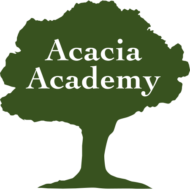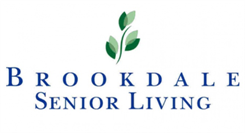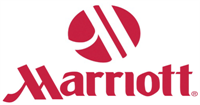An individualized program of instruction is written for each student based upon his/her specific learning needs.
Reading
Word recognition, phonics, vocabulary development, fluency and rate, reading enrichment, study skills, metacognition and metacomprehension techniques, critical and creative reading skills, and divergent thinking strategies.
The Wilson Reading Program
The Wilson Reading Program is a structured literacy program based on phonological-coding research and Orton-Gillingham principals. The program directly and systematically teaches the structure of the English language. Through the program, students learn fluent decoding and encoding skills to the level of mastery. Acacia Academy students receive individualized instruction from our Certified Wilson Reading Specialists.
Math
Students learn to apply mathematic knowledge to everyday consumer experiences. Students learn life skills math, addition, subtraction, multiplication, division, fractions, decimals, percents, time and measurement. Students develop money management and budgeting skills by actively managing personal bank accounts at Countryside Bank. Participation in student run businesses creates daily income for program use (community outing days, public transportation, consumer spending, etc.).
Social Work Counseling
Students will receive services from the school Social Worker. The goal is to enhance the acquisition of social thinking. Sessions address areas such as self-regulation, friendship building, problem solving, and success in the workplace.
Speech & Language Therapy
Speech language pathology services will provide the student for intervention and treatment of a variety of communication disorders, including cognitive aspects of communication (attention, memory, problem solving, executive functions), speech (articulation, voice, and fluency), receptive and expressive language skills, as well as pragmatic (social) language skills.
Occupational Therapy
The occupational therapist will work with the student in a number of areas to promote functional independence in the classroom and employment setting. The goal is to improve the student’s ability to perform tasks requiring visual perception skills, fine motor skills, gross motor skills, sensory processing skills, organization, and self-care. The occupational therapist aim to give the student the tools needed to successfully participate in a school and community setting.
Community Integration
- Provide information regarding The Department of Human Services and/or The Division of Rehabilitation
- Link students to appropriate community agency
- Provide information regarding postsecondary educational programs
- Tour local postsecondary colleges, community colleges and/or trade schools
- Link to volunteer/employment opportunities within the community
ONEder Transition Curriculum
The Transition Program instructors have access to an assortment of curriculum resources including
ONEder Transition Curriculum. ONEder is designed as a blended solution to provide instructors the flexibility to implement the program in a variety of settings. The curriculum focuses on eight areas that employers find are most critical to success in the workplace:
- Identifying Personal Strengths
- Identifying and Overcoming Challenges
- Building Self-Advocacy
- Developing Self-Determination
- Interpersonal Skills
- Setting Personal Goals
- Cultivating Communication Skills
- Exploring Career Options
Transition Program students benefit from the differentiated instruction and curriculum designed to address individual needs, goals, and learning styles.










